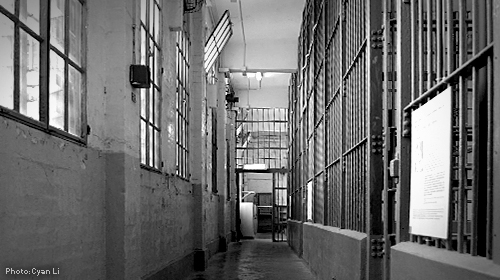
I believe it’s possible that a private, for-profit prison can be operated in a responsible manner. Based on my experience, however, the chance of this occurring is small. Time and time again, the incentive to cut corners in order to maximize profits seems to trump the desire to operate a responsible facility.
The Idaho Correctional Center (ICC) in Boise, Idaho, is operated by Corrections Corporation of America (CCA), the largest for-profit operator of private prisons in the US, with revenue for the last quarter of $431.10 million. ICC represents the perfect storm of what can go wrong in the private prisons system.
In 2000, the Governor of Idaho, C.L. “Butch” Otter, helped select CCA to operate ICC.
Serious concerns about CCA’s administration of ICC began in 2008, when the Idaho Department of Correction (IDOC), which oversees CCA’s administration of ICC, found that there were four times as many prisoner-on-prisoner assaults occurring at ICC as in Idaho’s seven other prisons combined. Inadequate staffing was identified as a primary cause of the bloodshed, with guards failing to take appropriate measures to halt rampant violence. Stronger prisoners (and gangs) were allowed to prey on weaker prisoners with virtual impunity.
When violence at ICC persisted, the ACLU filed suit against CCA in federal court in March 2010, accusing the company of violating the Eighth Amendment’s ban on cruel and unusual punishment in its operation of ICC. Plaintiffs’ complaint details more than 30 gruesome assaults that might have been prevented had CCA operated ICC in a responsible manner.
CCA avoided trial by settling the case in September 2011, agreeing to the entry of a court order that requires CCA to make a number of improvements in the way it operates ICC. The single most important provision in the order obligates CCA “to comply with the staffing pattern” set forth in its contract with IDOC. Thus, in order to meet its federal duties, CCA need only provide the number of prison guards (and other staff) it agreed to provide in its state contract. Unfortunately, the lure of undeserved profits proved too attractive, and CCA flagrantly violated its staffing obligations.
In June 2013, the ACLU filed a motion seeking to hold CCA and ICC’s warden, Timothy Wengler, in civil contempt of court. Among other things, the court found (1) that CCA failed to fill thousands of hours of guard posts required by the CCA-IDOC contract, (2) that CCA falsified staffing records to make it appear that ICC was fully staffed, which allowed CCA to collect money from IDOC for guards who were never assigned to work, (3) CCA may have short-staffed ICC every day since the order was entered on September 20, 2011, and (4) fault rests with top administrators of CCA and Warden Wengler and not, as CCA argued, only lower echelon officers.
Recently, Gov. Otter asked the Idaho State Police to open a criminal investigation against CCA. According to media reports, a group of Idaho legislators has asked the FBI to open a criminal investigation against CCA as well.
Whether CCA will be found guilty of criminal wrongdoing remains to be seen, but there is compelling evidence to support it. Last month, an independent auditor found that CCA failed to fill at least 26,000 hours of required posts for 2012 alone, which averages 500 hours a week of missing security staff. It is highly unlikely that Warden Wengler and other top prison officials whose duty it is to ensure full staffing could be unaware of so many vacant posts. Either CCA instructed Warden Wengler to understaff ICC or CCA cannot be trusted to hire competent wardens.
Moreover, it’s reasonable to assume that CCA had to have noticed that it was spending tens of thousands of dollars less in salaries than its contract would require. Also telling is the fact that, to this day, CCA has yet to fire top officials at ICC responsible for the understaffing, leading one to presume that they were instructed to behave the way they did.
In any event, if CCA wants to convince the public it can run a prison responsibly, it will have to do a whole lot better than the lying, cheating, and gross incompetence that characterizes its operation of ICC, and which may result in criminal prosecutions.
Learn more about private prisons and other civil liberty issues: Sign up for breaking news alerts,follow us on Twitter, and like us on Facebook.
Stay informed
Sign up to be the first to hear about how to take action.
By completing this form, I agree to receive occasional emails per the terms of the ACLU's privacy statement.
By completing this form, I agree to receive occasional emails per the terms of the ACLU's privacy statement.

